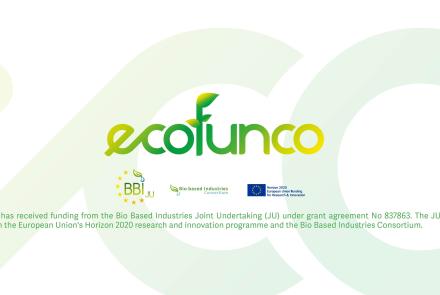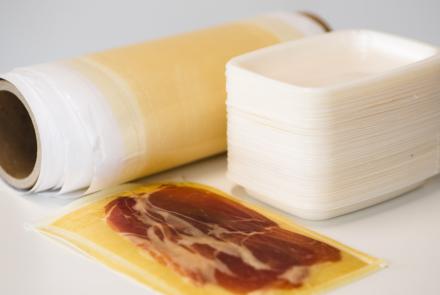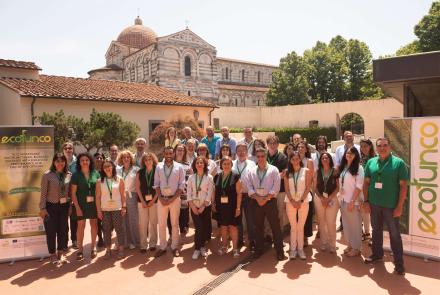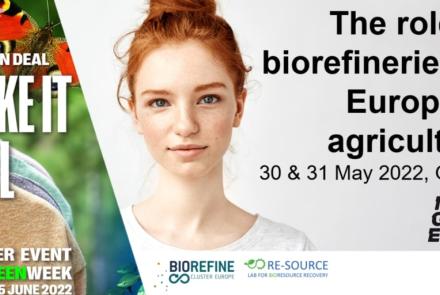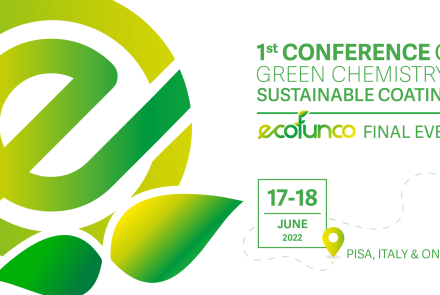ECOFUNCO: an EU Green Deal ally
In December 2019, the European Union (EU) launched the most ambitious climate action ever attempted, the EU Green Deal. On the 14 July 2021, the European Commission adopted the set of proposals, called the European Green Deal, to make the EU's climate, energy, transport and taxation policies fit for reducing net greenhouse gas emissions by at least 55% by 2030, compared to 1990 levels.
Aiming at transforming the 27-country bloc into a “fair and prosperous society, with a modern, resource-efficient and competitive economy”1, the deal builds on two decades of work on creating a path towards sustainable and inclusive growth.
With its focus on effectively converting food and agro-waste biomass into new bio-based coating materials for plastic and cellulose, the ECOFUNCO project plays an important role in the radical change the EU endorsed through the Green Deal. By providing eco-friendly alternatives for the production of food and sanitary packaging, ECOFUNCO not only allows for more sustainable end-of-life options to currently available comparable products, it also offers improved performance.
Watch the European Green Deal explanatory video by the European Commission
While the EU wants to make a greenhouse gas net-emission-free society a reality by 2050, ECOFUNCO encourages industry and public practices aimed at accelerating the transition towards a bio-based circular economy, in which waste products are seen as resources instead of burdens and the direct link between economic growth and the over exploitation of natural resources can be empirically severed.
In fact, bio-based coating has the potential to reduce greenhouse gas (GHG) emissions by approximately 50% compared to its petrochemical equivalents, and this is without considering the emissions avoidable through sustainable production cycles. Because the unusable part of the raw material used to produce bio-based products naturally returns to the earth or can be transformed into energy, the process comparatively avoids or largely mitigates emissions.
As a practical example, it is sufficient to think that the collection and industrial composting of 1kg of polylactic acid (PLA), a bioplastic made from lactic acid and used to package food products, accounts for 0.0612 kg of equivalent CO2 emissions, and home composting produces almost zero emissions2. Instead, the collection and incineration of 1 kg of the most common type of plastics, polyethylene (PE) or polypropylene (PP), at municipal level produces respectively 3.03 kg and 2.55 kg of CO2 equivalent emissions, namely over three and two and a half times more than PLA or home composting.
Currently, the EU produces over 880 million tons of agri-food industry residues a year, with a cost estimate of 143 billion euros4. In the best case scenario, such residues are used to produce biogas, biofertilizers or animal feed. However, a large fraction remains unutilized and, when left to rot in the vicinities of industrial sites, it produces GHG emissions. ECOFUNCO contributes to reversing this trend and improving resource use and management through a systemic and multidisciplinary approach that increases the efficiency of bio-based value chains, in compliance with the EU Green Deal’s Farm to Fork Strategy5.
As a matter of fact, thanks to the work of ECOFUNCO’s partners, agri-food waste coming from tomatoes, sunflowers, beans, fish, seafood, mushrooms and plants is upgraded to renewable alternatives to petroleum-based polymers and developed into bio-based coatings technologies, which use energy-efficient and low-emissions production processes, applying ecological approaches and green chemistry.
The bio-based polymers produced in ECOFUNCO target various end-use applications, which span from packaging to sanitary products. Addressing a wide range of industries, from polymer chemistry to plastic converting and manufacturing, ECOFUNCO outperforms existing systems. Beyond proposing a mere substitution of fossil-based coating solutions, ECOFUNCO has a catalytic power for generating lasting change.
Notes
[1] European Commission. Communication from the Commission to the European Parliament, the Council, the European Economic and Social Committee and the Committee of the Regions: The European Green Deal; COM(2019) 640 Final from 11.12.2019; European Commission: Brussels, Belgium, 2019, last consulted on 6/11/2020.
[2] Considering effective, aerobic biodegradation is performed, excluding transport or manual composting.
[3] Data extracted from the Ecoinvent Database, last accessed on 06/11/2020.
[4] European Commission, Fusions Estimates of EU food waste level report, 2016, last accessed on 06/11/2020.
[5] European Commission, Farm to Fork Strategy for a fair, healthy and environmentally-friendly food system, last consulted on 15/07/2021.



